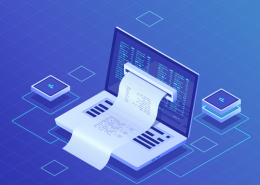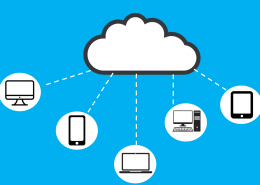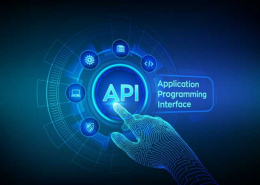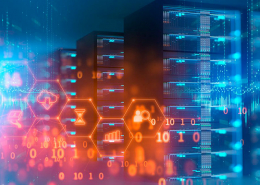
4 trends of new business models in Open Banking
Open Banking
New business models in Open Banking have always been some of the greatest benefits of implementing Open Banking due to its high potential for encouraging innovation.
The main idea of
Open Banking is that customers own their banking/financial…

What is Open Banking and how does it work?
Open Banking
Open Banking is the true digital revolution of the financial market. With Open Banking, people authorize their financial data to be shared with fintechs or other institutions participating in the ecosystem. Canada's Advisory Committee on Open…

What Is Nearshore Software Development?
Business Agility
Nearshore software development is a process in which you can outsource your IT services and development workload through teams and employees in neighboring countries. In every way, it is like offshore development, except that the locations…

Serverless Applications and Cloud Computing
Cloud ComputingSoftware developers can compile and run applications independently from servers through the serverless architecture model. The servers do not cease to exist, instead they are managed and operated by third parties as a service.

Modernization of Systems for Use in the Cloud
Cloud Computing
In Brazil,
cloud infrastructure grows rapidly and shows signs of maturity. Organizations
have been implementing new practices and exploring new business models through
this infrastructure model.
However, most business applications and systems…

Cloud Computing and Service Models
Cloud Computing
The three main Service Models of the Cloud Computing structure, as defined by the NIST - National Institute of Standards and Technology of the U.S. Department of Commerce, are: Software as a Service, Platform as a Service, Infrastructure as…

Scrum – Framework for software development
Business AgilityScrum is a framework for more uncertain complex projects. This approach is well known in the technology area and is usually used in agile software development projects. Scrum is a set of practices, values and principles, which can be applied in different ways, according to the reality of each project, team or organization.

Agile and Lean – Combining both philosophies
Business AgilityThe Agile and Lean philosophies can transform the work of organizations and bring very positive results when combined. Optimizing processes, reducing costs, increasing productivity and integrating the work of a company's areas are enhanced by the combination of these philosophies. However, these philosophies are not always used together.

Microservices: Deployment and Instantiation Patterns
Microservice
Like any software architecture, specific characteristics of microservices relate to essential development, operation and maintenance issues, such as availability, reliability, scalability and independence. As for the deployment and instantiation…

Gradually Migrate from a Monolith to Microservices
Microservice
Refactoring an application for the microservice architecture has several issues. Although it is possible to rewrite the application, a strategy known as “big bang rewrite”, this approach is rarely used. The most common is to gradually…

Microservices and monoliths: comparison of architectures
Microservice
The term microservices came up at a conference for software architects, in May 2011, to represent a style of system architecture, not the size of the services that comprise it, as the name might imply.
The purpose of the microservice-oriented…

Gartner Magic Quadrant and Kong Platform for API Management
APIExposing an Application Programing Interface, or API, is the easiest and most common way to integrate with a cloud-based service. Service providers create an API Gateway so that other platforms use it through internet. In this scenario, many legacy systems have been rewritten to be provided as services on the internet as well.

Microservices: Benefits
MicroserviceUnlike traditional monolithic architecture, microservice architecture is an approach that structures the application through several small autonomous services that work together. Each microservice is made according to specific circumstances of the business, such as user interface, billing or service.

Migrating From Monoliths to Microservices
MicroserviceTo decide whether a large and complex monolithic application should be refactored into microservices, you should answer a few questions...

Modern application development with Microservices and API Gateways
microservices, WEBINARThis webinar, presented by Claudio Acquaviva, Solution Architect at Kong Inc, shows an introduction to our technology and infrastructure modernization process for application development through three perspectives

API Gateways
Application Programming Interface
Due to
the popularization of service offerings on the internet, consuming and making
APIs available to third parties has created many business opportunities for the
most diverse segments.
In addition to communicating with each other,api-gateway,…

API First Design
Application Programming Interface
The concept of systems utilizing and making APIs avaiable to third parties has been creating many business opportunities in different industries.
A good API design is one of the major factors that allow companies like Uber, Google and Netflix…

API Management
Application Programming InterfaceDue to the growing importance of APIs for businesses today, choosing an appropriate API management platform has become an essential activity.

Microservices: Properties and Architecture
Microservice
As mentioned in our last post, "Microservices: Concepts and Characteristics" microservices is one of the most recent approaches to developing enterprise software applications. Instead of developing an application with a big monolith, is created…

Microservices: Concepts and Characteristics
MicroserviceSimple services are created which offer the desired functionality when combined instead of developing an application as a large monolith.
Why use this approach that seems to be much more complex than the traditional application development model, whose functionalities are available in a single component?
 https://www.opus.software/wp-content/uploads/2020/04/alexandre-magno.jpeg
1365
2048
wpuser
/wp-content/uploads/2019/01/opus_logo.png
wpuser2020-06-03 10:16:522020-09-17 16:45:25Business Agility Design
https://www.opus.software/wp-content/uploads/2020/04/alexandre-magno.jpeg
1365
2048
wpuser
/wp-content/uploads/2019/01/opus_logo.png
wpuser2020-06-03 10:16:522020-09-17 16:45:25Business Agility Design
Microservices Architecture - Understanding all the moving parts
Microservice
A
microservices architecture can be very beneficial when developing software. Its
main strengths are scalability, application resilience, ease of deployment and
higher efficiency maintaining systems.
In this
article, we will better understand…
